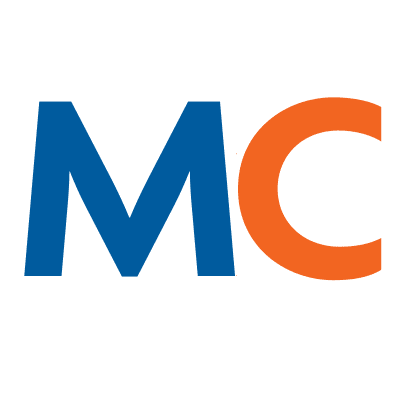- Solutions
- Solutions
- Home Health
- Hospice
- Life Plan Community
- Palliative Care
- Private Duty
- Senior Living
- Skilled Nursing
- Skilled Nursing
- Skilled Nursing Software
- Advanced Insights
- Customer relationship management
- Data and analytics
- Financial & operations management
- Marketing
- Nutrition management
- Referral management
- Regulatory compliance
- Retail management
- Resident engagement
- Revenue cycle management
- Skilled nursing interoperability
- Partners
- Blogs
- Resources
- About
- User Conference

Using citation trends to prepare for your CMS survey
Surveys can affect every aspect of your business. That’s why it’s important to understand CMS citation trends not only to prepare for your next survey, but also to improve your overall level of care. Knowing where inspectors are likely to focus, regardless of care setting, offers valuable information you can use to prepare for your next survey and to improve patient and resident outcomes.
A key tool federal surveyors use to guide their surveys is available to you, too. Critical element pathways, available on the CMS website, cover a range of care topics and care settings. They include observations made over a number of shifts, and include questions and interviews with residents, families and staff.
There are two things to remember about critical element pathways. First, even if a pathway is focused on a specific care setting, it can still offer valuable insights for other settings. And second, you can use the pathways to help develop the policies and procedures you should have in place to support person-centered care.
Citation trends to watch
One of the most common CMS citations is violation of protocols for infection prevention and control. While these protocols have been important for years, the COVID pandemic resulted in an even stronger focus.
There is a detailed critical element pathway for infection control you can use as a resource, but the first step is to make sure your entire care team knows the procedures to note symptoms, screen residents and quickly respond to positive test results. Your teams should also know the correct types and proper use of personal protective equipment. In addition, isolation and quarantine zones in your facility should be well-marked and secure. Surveyors will also assess your policies on handling residents with dementia who may wander into isolation and quarantine areas.
Staffing and training
As part of your CMS survey, surveyors will check facility records to look not only for proper staffing levels, but also to make sure your staff is able to provide appropriate care for your specific resident mix. A component of that is training and continuing education. Whether you’re providing dementia care, behavioral care or treating pressure wounds, surveyors want to be sure residents are receiving proper care from a person who has the appropriate training to deliver it.
Accidents and hazards
This broad category includes everything from falls and accidents to logging hot water temperatures. One change to the survey regarding hazards is that surveyors now monitor not only smoking on campus, but also use of electronic cigarettes. Surveyors will look into accident causes and all related documentation. They will want to see evidence that residents are protected from future accidents and that a thorough investigation was conducted into causes. Lack of an adequate investigation often triggers a citation.
Immediate jeopardy
The “immediate jeopardy” citation in a paraphrase definition is when facility actions or inactions cause or have the potential to cause residents serious injury or death. Frequently, immediate jeopardies are cited in the abuse, neglect and exploitation tags. If there is an allegation in this grouping of tags, surveyors will first look to make sure the resident was protected from future abuse, and a thorough investigation into any incident is conducted. As with accidents and hazards, the lack of a thorough investigation often triggers a citation. You should also note that the CMS survey has been updated to broaden the definition of neglect and provides more interpretation in the abuse and neglect components of Appendix PP. Interpretations include citations where indifference or disregard for resident care, comfort or safety results – or could have resulted – in physical harm, pain, mental anguish or emotional distress.
Cognitive assessments
Another component of care CMS monitors closely is the cognitive assessment of memory care residents. Surveyors will check whether care plans for these residents address specific functional limitations; how those care plans are monitored and evaluated; and whether goals are personalized, realistic and effective.
Other important categories
Several other areas surveyors are sure to review include food preparation and service, activities of daily living, care planning, labeling and storage of drugs and biologicals, and treatments to prevent pressure ulcers or other skin integrity issues. If your facility offers hospice care, the care and services provided to those residents will be scrutinized, as well as the training of those caregivers, exactly what care is being provided, and who is providing it.
Use insights and information to prepare for your next survey
Understanding CMS citation trends can help reduce the stress of preparing for your next CMS survey. Use available resources, including the critical element pathways on the CMS website and information from the Medicare Learning Network to put you on the path for a successful survey—and a successful business.
Rely on an EHR that offers the tools you need for monitoring and reporting
MatrixCare understands how having the right tools to track, monitor and report the care provided can be a game-changer. Let us show you how an intelligent EHR can make a difference for your caregivers, patients and residents.
Request a demo today to find out how our EHR can help you prepare for CMS surveyors while delivering high quality care.
See what MatrixCare can do for you
Janet Feldkamp
RN, BSN, LNHA, CHC, JD, Partner at the Benesch Healthcare + Practice Group, Benesch Friedlander Coplan & Aronoff
Janet focuses her practice in the area of health care law, including long-term care survey and certification, state and federal regulation, physician and nurse practice, and fraud and abuse involving hospitals, suppliers, insurers and physicians. She retains active licenses as a registered nurse and a nursing home administrator and has extensive health care experience.
Janet is a member of the editorial advisory board of Caring for the Ages, a monthly newspaper for long term care practitioners. She has been a frequent speaker on health law related topics, particularly in the area of long term care. Janet is also a co-author of the Post-Acute Care Handbook: Regulatory, Risk & Compliance Issues, 2015, published by the American Health Lawyers Association.
Related Posts


See MatrixCare in action
Start by having a call with one of our experts to see our platform in action.
MatrixCare offers industry-leading software solutions. Thousands of facility-based and home-based care organizations trust us to help them improve efficiency and provide exceptional care.





